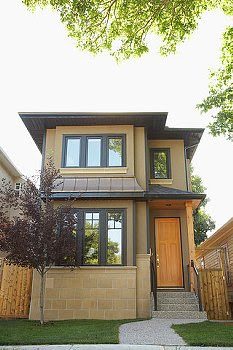 |
 |
From Editor: This is a guest article by Sachin
 Confused about the first home owner grant? Wondering whether you’re eligible? Use this quick guide to cut through the jargon and find out what the grant is all about.
Confused about the first home owner grant? Wondering whether you’re eligible? Use this quick guide to cut through the jargon and find out what the grant is all about.
The First Home Owner Grant (‘FHOG’) was first introduced by the Federal government in 1 July 2000 to offset the effect of GST on home purchases. While it’s a national scheme, it’s administered and funded by the states and territories. While it may not be able to be used for investment property in Sydney it is still a great way to add to your first deposit. In this article we take a closer look at the grant, its eligibility criteria, and specific state/territory requirements
What Is It?
The FHOG is a one-off grant of up to $7000 available to first time home owners who meet the stated eligibility criteria. The grant can be used for any aspect of the purchase, including the deposit amount. As such, the grant can be very useful for covering aspects of the purchase, including relatively smaller items like conveyancing fees.
During 2008 and 2009 the FHOG was doubled to $14,000 to alleviate the impact of the global financial crisis. While the grant has since been halved back to the original $7,000, there are additional state- and territory-level incentives and subsidies that you may be eligible for. It may not be used for investment property Sydney but you can buy a dwelling, live in it for a while, and then rent it out later to get around this.
The First Home Owner’s Grant – Operation and Key Criteria
How Does It Work?
There’s no tax on the grant itself. The applicant can apply directly through the local state revenue office or apply through their lender, which is usually an approved bank or lending institution, and the grant can then be paid directly to the lender. There is no fee payable to apply for the grant and processing times are usually very fast – within two weeks.The grant can only be used once. The grant is approved at settlement or after settlement. Your conveyancing professional can provide you with advice about how this works.
Key Criteria
While each state and territory may have additional requirements, these are the key criteria for the FHOG:
# Residential status – you must be an Australia citizen or permanent resident.
# Prior ownership of property – you must not have owned property in Australia before.
# Residence – applicants are required to have lived in Australia for at least the past six months.
# Age – applicants need to be 18 years of age or over.
# Personal purchase – applicants are required to be purchasing the property in their name and not through a company or trust.
# No prior grants – Neither the applicant nor their spouse can have claimed the grant before.
# Eligible home – the home must be within Australia and should be a (new or existing) house, unit, flat, or some kind of self-contained dwelling that can be used as a home residence. So, for example, it can’t be a commercial or office property.
# Residing in the property – at least one of the applicants need to live in the property for at least six continous months. This six month period must start within the first 12 months after buying the property.
# Application cut-off – if you’re apply after purchase or building your own house, generally you’ll need to apply within 12 months of settlement or completion of construction.
Additional Concessions and Requirements by State/Territory
Property Value Cap Amounts
In the ACT, Queensland, Victoria, and the NT, the cap amount is $750,000. Applicants who purchase a house for more than the cap amount won’t be eligible for the FHOG. For the other state, these caps currently apply:# New South Wales: $835,000# South Australia: $575,000# Western Australia: $750,000 or $1,000,000 for property north of the 26th parallel# Tasmania: No limitEach state and territory may have their own additional first home owner bonuses and grants as well as subsidies and stamp duty exemptions. Some of these can amount to thousands of dollars in concessions. It’s important to find out more from your state or territory government and ensure that you’re aware of all the state-level grants available.
 Like to Add a Guest Post?
Like to Add a Guest Post?
This post was written by a guest writer. If you’d like to add a guest post in Money Hacker, please check out Write for Us page for details about how YOU can share your knowledge with our community.

